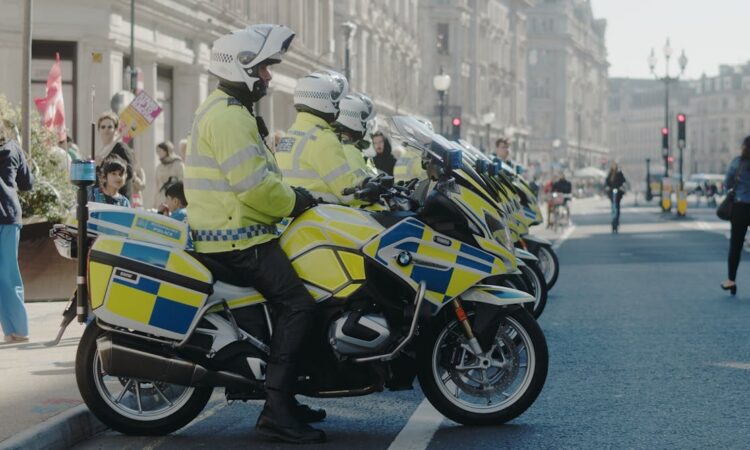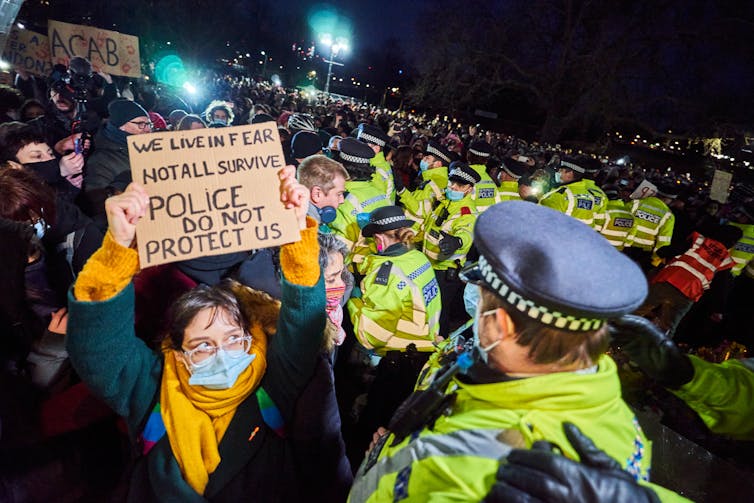Police get budget money for first responder drones – but new tech won’t solve the issues facing UK forces

At a time when UK taxpayers are contributing record-high levels to public services, there is little to show for it when it comes to police and crime prevention. There are record lows in public confidence in police, and very poor criminal justice outcomes.
This is due to a lack of investment in recruiting, retaining, training and deploying the best people in policing. But instead of earmarking more money for these, the government has announced £230 million in the budget for money-saving technology for police, including drones to deploy as a first response to some 999 calls.
I’m the founder of an innovation in policing competition, so I’m no technophobe. I know firsthand how technology can improve police performance, by improving IT systems, using bodycams to record evidence and to recruit virtual volunteers, but I’m concerned that the government is rushing towards using public money for techno gimmicks to justify years of cuts to vital services.
In England and Wales, police are funded by a combination of annual government grants and funds from local council taxes. This year’s £18.4 billion grant is an increase of £842.9 million from the previous year, and already includes £500.9 million for police technology.
But, in reality, the lack of investment in policing for over a decade due to austerity, financial reserves have been exhausted and much experience has been lost.
Since 2010, central government police funding has fallen by about 20% in real terms. Hundreds of police stations have closed in that time, and local officers have disappeared from communities.
The government grant is allocated to forces depending on populations and crime priorities. In the coming year, £45.6 million is to tackle serious violence, £17.6 million to combat exploitation and abuse, and £30 million to drugs. None of these amounts are anywhere near that earmarked for technology that we can ill afford to prioritise when we can’t fund the basics well enough.
Much of the money goes to maintaining buildings, replacing worn-out vehicles and recruiting new officers to fill the huge personnel gaps caused by austerity. That’s before funding new challenges, including ongoing protests – an extra 2,000 officers’ time was needed over a single Armistice weekend demonstration.
The government-commissioned Policing Productivity Review regards new technology as key to future productivity, aiming to save 38 million hours of officer time. But a focus on drones rather than detectives is worrying.
Flashy tech won’t solve existing problems
Over the last few years, the percentage of crimes recorded that lead to someone being charged has dropped to around 5.5% on average, from 16% in 2015. Two days before the budget, it was reported that police failed to solve any burglaries in half of neighbourhoods in England and Wales in the last three years. The British Retail Crime Survey reported that retailers are not even bothering to report crimes, such as violence against staff, as 64% of those surveyed thought it would not be taken seriously.
The police inspectorate says low charge rates show that the police are not getting the basics right.
Due to austerity funding cuts, police forces in England and Wales were starved of personnel for over a decade, shedding thousands of experienced people before the 2019 drive to recruit 20,000 officers. This has resulted in most of the frontline now very junior, inexperienced and in need of training.
The current issues facing policing are better served by investing in human skills and trust to get the basics of crime-solving right, and earn back public confidence after a horrible few years.

Vincenzo Lullo/Shutterstock
Half of the public do not trust professional standards in policing, no doubt influenced by things like the rape, kidnap and murder of Sarah Everard, and the murder of Chris Kaba.
With inconsistent investigations and poor police-community relations, I am not convinced that trying to cut corners further by investing in drones over detectives, and replacing bobbies with bots is the right plan. Introducing new technology also comes with risks, as drones could be vulnerable to hackers and other criminals. The public are paying the most-ever tax and not seeing results – this is not the time to use them as guinea pigs.






